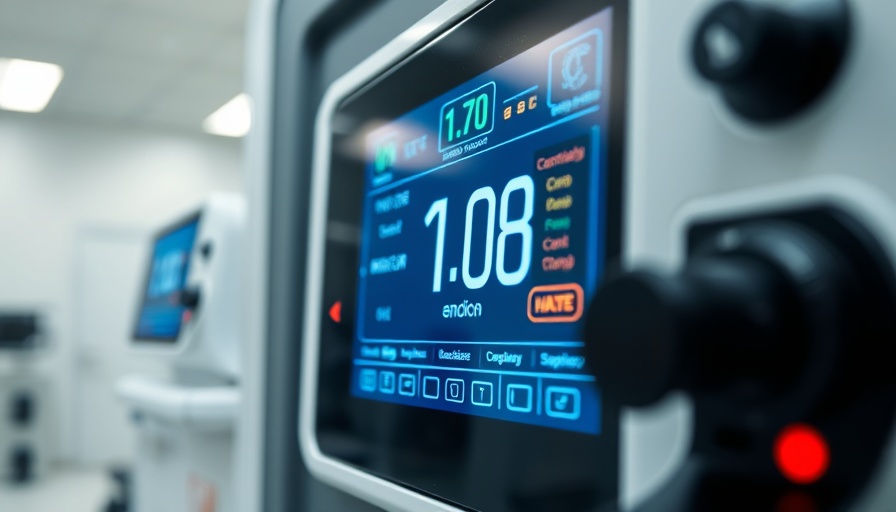
Revolutionizing HIV Detection: Rapid Results at Your Fingertips
In a groundbreaking development, scientists from Northwestern University have introduced an innovative point-of-care technology that can provide accurate HIV test results in mere minutes. This low-cost solution harnesses a nanomechanical platform, utilizing tiny silicon cantilevers capable of detecting multiple HIV antigens with remarkable sensitivity. As healthcare practices embrace faster diagnostic capabilities, this advancement signals a significant shift in how we approach HIV detection and preventive care.
Breaking Barriers in Early Detection
Traditionally, HIV diagnostics relied on identifying antibodies that take weeks to develop post-infection, delaying crucial intervention. However, the new technology allows for simultaneous detection of HIV antigens and antibodies, thus enabling early diagnosis and rapid response. With higher demand for efficiency in healthcare, this technology creates opportunities for immediate medical interventions, particularly in resource-limited settings where laboratory access may be scarce. It’s designed to function off-grid, using solar power, making it ideal for remote and underserved communities.
Expanding the Fight Against Infectious Diseases
The efficacy of this new biosensor extends beyond HIV, with prior success in testing for SARS-CoV-2. As stated by co-author Judd F. Hultquist, the team is optimistic about its potential application for other infections, such as measles, an emerging health concern across the United States. This versatility suggests a revolutionary tool in combating infectious diseases, ensuring timely and efficient care when it's needed most.
Conclusion: A New Era of Healthcare Diagnostics
With the implementation of this cutting-edge technology, healthcare practitioners and tech professionals stand at the forefront of a new era in diagnostics. As HIV testing advances towards immediate results, the potential for reducing transmission rates and enhancing patient outcomes becomes increasingly tangible. This shift could ultimately contribute to the global effort in ending the HIV epidemic. For those in the medical and tech fields, staying ahead with such innovations could transform not just practices but lives.
 Add Row
Add Row  Add
Add 




 Add Row
Add Row  Add
Add 



Write A Comment